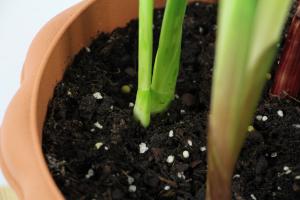What Type of Animals Will Get into Tomato Plants
Tomato plants are a favorite food of many animals, thanks to their succulent and nutrient-rich fruit. As a gardener, it is essential to know the types of animals that are likely to munch on your tomato plants so that you can take the necessary measures to protect them. In this article, we will explore some of the animals that may get into your tomato plants and what you can do to prevent them.
The Common Tomato Munchers
1. Squirrels - These pesky rodents are often the first to discover ripe tomatoes and will not hesitate to take a bite out of them. They are agile climbers and can easily scale fences and walls to reach your tomato plants.
2. Birds - Many bird species enjoy eating ripe tomatoes, especially when they are scarce in the wild. Common culprits include sparrows, finches, and robins.
3. Rabbits - These cute and cuddly creatures may seem harmless, but they are notorious for nibbling on tender tomato leaves and stems. They can also cause significant damage to your young tomato plants.
4. Deer - If you're living in a rural area, deer can be a significant threat to your tomato plants. These large mammals are herbivores and will feast on your tomato plants if they can access them.
Preventing Animal Damage to Your Tomato Plants
1. Fencing - Fencing is one of the most effective ways of keeping animals away from your tomato plants. You can use chicken wire or a sturdy mesh net to create a barrier around your plants. Make sure the fence is tall enough to prevent animals from jumping over it.
2. Repellents - There are many animal repellents available on the market that can deter animals from your tomato plants. You can use natural or chemical repellents, depending on your preference. Some common natural repellents include pepper sprays or citrus peels, while chemical repellents contain ingredients like ammonia or predator urine.
3. Scare Tactics - Another effective way of keeping animals away from your tomato plants is by using scare tactics. You can use visuals or sounds to spook animals away from your plants. For example, hanging shiny objects like CDs or mirrors around your garden can deter birds. You can also place a motion-activated sprinkler in your garden, which will spray water whenever an animal approaches your plants.
4. Companion Planting - Companion planting involves planting specific plants alongside your tomato plants to attract beneficial insects and repel harmful ones. For example, planting marigolds, garlic, or basil can discourage deer and rabbits from feasting on your tomato plants. You can also attract birds that can feed on insects that may damage your tomato plants.
The Bottom Line
As a gardener, it's essential to be proactive in protecting your tomato plants from animal damage. While there is no one-size-fits-all solution, using a combination of fencing, repellents, scare tactics, and companion planting can go a long way in deterring animals from munching on your tomato plants. With a little bit of effort, you can ensure a healthy and productive tomato crop.

 how many times do yo...
how many times do yo... how many planted tre...
how many planted tre... how many pine trees ...
how many pine trees ... how many pecan trees...
how many pecan trees... how many plants comp...
how many plants comp... how many plants can ...
how many plants can ... how many plants and ...
how many plants and ... how many pepper plan...
how many pepper plan...
































